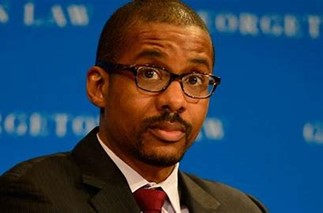
In May 2015, the U.S. Treasury's Financial Crimes Enforcement Network (FinCEN) cracked down on cryptocurrency company Ripple for anti-money-laundering lapses. The action was tone-setting in at least two respects: It served notice that the upstart virtual currency market would not escape investigatory scrutiny; and Ripple, despite paying a $700,000 civil money penalty, joined with many of its peers in embracing regulation as a way to communicate legitimacy and customer assurance.
Today, Ripple, having established its XRP as the biggest cryptocurrency other than Bitcoin and Ethereum, is facing a significant and potentially more damaging legal battle. A lawsuit filed in December by the Securities and Exchange Commission accuses the San Francisco-based organization of violating the Securities Act of 1933. Ripple and its current and previous CEOs, Brad Garlinghouse and Chris Larsen, allegedly “failed to register their ongoing offer and sale of billions of XRP to retail investors, which deprived potential purchasers of adequate disclosures about XRP and Ripple's business and other important longstanding protections that are fundamental to our robust public market system,” Stephanie Avakian, then director of the SEC's Division of Enforcement, said in a December 22 statement.
While this high-profile complaint is pending in U.S. District Court for the Southern District of New York - with possible disgorgement of “ill-gotten gains,” bans of digital-asset offerings, and civil money penalties hanging in the balance - the guard is changing in Washington, D.C. Avakian left her post at the end of the year, following SEC chairman Jay Clayton and other senior agency officials out the door as the new Democratic administration of President Joe Biden prepared to take over from that of Republican Donald Trump.
The Biden financial regulatory team is not fully formed, but the tea leaves are not hard to read. They may very well be to the liking of crypto industry interests hoping for more policy consistency and coherence.
Spotlight on Gensler

Nominated to succeed Clayton at the SEC is Gary Gensler, who headed the agency's futures-market counterpart, the Commodity Futures Trading Commission, from May 2009 to January 2014.
Gensler, who oversaw the Biden transition team's review of financial services regulation, is remembered for his aggressive implementation of Dodd-Frank Act reforms, which leads many bankers and lobbyists to expect a harder-line, re-regulatory tilt. That is also the common interpretation of Rohit Chopra's nomination to be director of the Consumer Financial Protection Bureau. He was assistant director after Dodd-Frank created the bureau, which congressional Democrats complain was subsequently defanged, and in 2018 joined the Federal Trade Commission.
More about where Gensler stands will come out in confirmation hearings - where the controversial pumping of GameStop's stock and the trading model of Robinhood are more likely than crypto to be the hot buttons du jour - but he has certainly evolved.
Since the onetime Goldman Sachs partner joined the MIT Sloan School of Management faculty in 2018, his “teaching and research has focused on blockchain technology, digital currencies, financial technology and public policy,” according to a recently posted MIT fact sheet. Gensler has also been co-director of MIT's Fintech@CSAIL program and senior adviser to the MIT Media Lab Digital Currency Initiative; co-authored a working paper, Deep Learning and Financial Stability; and taught free open courses Blockchain and Money and Fintech: Shaping the Financial World.
Tom Jessop, president of Fidelity Investments' institutional crypto business, Fidelity Digital Assets, said in a February 1 CNBC interview, “Given chairman-elect Gensler's experience in the space and what he's been doing in recent years, I think it paints a more generally constructive attitude or picture in terms of what we might expect going forward. I would note that we saw some fairly interesting and good regulatory developments last year.”
Hester Peirce, a Republican SEC member who has advocated a more accommodative policy on new digital products, only to be outvoted by others on the five-member commission, could be gaining an ally. On a webinar of the U.S. Chamber of Commerce's Center on Capital Markets Competitiveness (CCMC), which in January released a report calling for “a more closely coordinated response to the regulation of digital assets,” Peirce said she expects a Gensler-led agency to “take a fresh look” and move toward “regulatory clarity.”
J. Ashley Ebersole, a Washington-based partner of Bryan Cave Leighton Paisner and a former SEC attorney, says that Gensler's approach to swaps regulation and transparency while at the CFTC “is a good indicator of how he may approach more esoteric instruments at the SEC, including digital assets. This would be a positive development for those who believe the lack of regulation is hampering growth of the digital asset space.”
Regulatory Complexity
The CFTC, SEC and other domestic and international regulators have been wrestling with how to fit virtual currencies and other digital instruments into decades-old legal frameworks. The U.S. also has a uniquely complex regulatory landscape. In Digital Assets: A Framework for Regulation to Maintain the United States' Status as an Innovation Leader, the CCMC says that at the federal level alone, the SEC, CFTC, FinCEN, Federal Reserve Board, Federal Deposit Insurance Corp. (FDIC) and Office of the Comptroller of the Currency (OCC) have asserted “regulatory jurisdiction over digital assets . . . More coordination among regulatory agencies is needed.”
Agencies have sought to balance their enforcement mandates - as in the Ripple cases; as in CFTC charges last October against the cryptocurrency trading and derivatives platform BitMEX for alleged anti-money-laundering and other compliance deficiencies; as in a December settlement by digital-wallet technology pioneer BitGo with Treasury's Office of Foreign Assets Control (OFAC) for enabling transactions in Cuba, Iran and other “sanctioned jurisdictions” - with a desire to not inhibit, and even to actively promote, innovation.
“Digital assets hold great promise for our derivatives markets and for our economy,” CFTC chairman Heath Tarbert said when the BitMEX complaint was filed in the Southern District of New York. “For the United States to be a global leader in this space, it is imperative that we root out illegal activity like that alleged in this case. New and innovative financial products can flourish only if there is market integrity. We can't allow bad actors that break the law to gain an advantage over exchanges that are doing the right thing by complying with our rules.”

In January, Tarbert listed among the highlights of his year and a half as chairman and chief executive “promoting responsible fintech innovation, elevating LabCFTC into an independent operating unit, and beginning to treat Ether as a commodity.”
Now tipped as the nominee for CFTC chairman is Chris Brummer, a Georgetown University law professor and a fintech and cryptocurrency expert. Nominated by President Barack Obama to take a CFTC seat, but not confirmed by the Senate before Donald Trump took office, Brummer participated last year in discussions of central bank digital currencies with the CFTC Technology Advisory Committee and in panels during DC Fintech Week and a Central Bank of the Future conference hosted by the University of Michigan Center on Finance, Law and Policy and the Federal Reserve Bank of San Francisco.
Valuing Regulation
Crypto market leaders - including blockchain payments company Circle Internet Financial; digital currency exchange Coinbase, which is Circle's partner in a U.S. dollar stablecoin venture; Gemini Trust Co., led by Cameron and Tyler Winklevoss; and, at least prior to its current predicament, Ripple - have welcomed and even sought out regulation. Many have been attracted to the New York State Department of Financial Services' Bitlicense and trust company charters - and other state provisions such as a Wyoming special-purpose charter have gained some traction - while calling for greater consistency and clarity at the national level.
The CEO of the Circle-Coinbase initiative, the Centre Consortium, is David Puth, who formerly headed the CLS foreign exchange settlement infrastructure, and who stresses the importance of transparency in “working closely with policymakers to instill confidence.”
BitGo reported in December that its digital assets under custody surpassed $16 billion as a result of what it termed “accelerated interest by institutional investors seeking institutional-grade security and compliance.” After paying a $98,830 civil money penalty to settle OFAC charges for transactions that occurred between 2015 and 2019, the Palo Alto, California-based company announced in January that it hired Jeff Horowitz as chief compliance officer. He had been Coinbase's CCO for two years, spent 12 years with Pershing before that, and earlier worked for Citigroup, Goldman Sachs, Salomon Brothers and the FDIC.
BitGo opened a South Dakota-chartered trust company in 2018 and last year applied for a New York trust charter, aiming to “meet the strong demand by the world's leading institutional investors based in New York” with “regulatory oversight from one of the preeminent state regulators,” anti-money-laundering and Know Your Customer compliance, insurance coverage and other offerings.
Ripple's Response
Ripple has projected a regulation-friendly image in part through board and advisory relationships with the likes of Benjamin Lawsky, the former New York State financial services superintendent and architect of the Bitlicense; and Michael Barr, who as a U.S. Treasury assistant secretary had a key role in drafting the Dodd-Frank Act and is reportedly Biden's choice to head the Office of the Comptroller of the Currency.
In December, Ripple announced that Sandra O'Connor was joining its board of directors. She recently retired as JPMorgan Chase & Co.'s chief regulatory affairs officer and had chaired the Alternative Reference Rates Committee, which is supporting U.S. markets' transition from the Libor interest rate benchmark to the Secured Overnight Financing Rate (SOFR).

“Her extensive network and in-depth understanding of markets, capital flows and banking will provide valuable and unique insights as new policies and regulations take shape across the U.S.,” stated CEO Brad Garlinghouse, who at one point last year said he was contemplating relocating Ripple to another country. He has since been pressing the argument that “the SEC is completely wrong on the facts and law” in contending that XRP is an investment contract rather than a currency.
“The U.S. needs a single clear regulatory framework for crypto that levels the playing field and supports American innovation and companies,” Garlinghouse said in the O'Connor announcement. “Sandie's experience and guidance will support us on our journey to building a more inclusive financial system.”
A January 29 update on Ripple's answer to the SEC allegations said, “Although the legal process is slow, we are working to get this resolved as quickly as possible to bring clarity to the broader market. Moving quickly is important because, as you know, since the SEC filed its complaint, XRP lost almost half of its market value, causing retail holders of XRP with no connection to Ripple - the very people the SEC purports to protect - to suffer billions of dollars in losses. What's more, part of the SEC's mission is to maintain orderly markets, and yet their overreach created havoc in the market.”
Innovation Strategies
The lack of coordination across regulatory agencies did not prevent some innovation-promoting progress, notably under Tarbert and his predecessor at the CFTC, J. Christopher Giancarlo, who is currently spearheading the Digital Dollar Project - of which Chris Brummer is an adviser. In late January, Jason Somensatto, a blockchain lawyer and senior counsel of the 0x Labs decentralized finance (DeFi) protocol, announced on Twitter and LinkedIn that he would be joining LabCFTC, the innovation office whose director, Melissa Netram, previously was Intuit's director of global public policy and regulatory affairs.
The OCC, the supervisor of national banks, has a “responsible innovation” program dating back to the Obama administration, and it raised its crypto profile in 2020 thanks to Brian Brooks. He was Coinbase's chief legal officer for a year and a half before being named senior deputy comptroller in April and then serving as acting comptroller from May until January 14, 2021. (Trump's formal nomination of Brooks to be permanent comptroller was not taken up by the Senate.)
An interpretive letter in July clarified national banks' and federal savings associations' authority to provide cryptocurrency custody services, with the OCC stating that “as the financial markets are increasingly digitized, the need will increase for banks and other service providers to leverage new technology and innovative ways to serve their customers' needs. By doing so, banks can continue to fulfill the financial intermediation function they have historically played in providing payment, lending, and deposit services.”
The prospective nominee for comptroller, Michael Barr, is a law and public policy professor of the University of Michigan, dean of its Gerald R. Ford School of Public Policy, and founder and faculty director of the Center on Finance, Law and Policy. Co-author of Financial Regulation: Law & Policy (2nd edition, 2018), Barr had White House and Treasury positions in the Clinton and Obama administrations, and two of his outside advisory roles - on the Bill and Melinda Gates Foundation FinTech Advisory Council and the FDIC Advisory Committee on Economic Inclusion - speak to his interests in financial technology and financial inclusion. He is an adviser of fintech venture capital firm Nyca Partners and the Alliance for Innovative Regulation.
Some progressive Democrats are critical of Barr for not being hard enough on the banking industry with Dodd-Frank and for his past ties to Ripple. On the other hand, Jesse Van Tol, chief executive of the National Community Reinvestment Coalition, told the New York Times, “Michael Barr will be the most progressive comptroller in my lifetime, maybe ever.”
ProPublica's Jesse Eisinger maintains that Biden's “early choices are among the most aggressive financial and corporate regulators of recent years . . . Even the new Treasury secretary, Janet Yellen, has generated tempered optimism” among critics on Biden's left flank, one indication being the harsh penalties levied on Wells Fargo & Co. at the end of her tenure as Federal Reserve Board chair.
Not so vocal on crypto, Yellen was once dismissive of Bitcoin and more recently has sounded more concerned about illicit uses of virtual currencies. “Yellen and her top-level peers [should not be expected] to consistently rule in favor of lower regulatory hurdles and less friction,” writes Anders Bylund on Motley Fool. “But I do expect them to establish a reasonable balance between money-laundering fears and privacy, between efficiency and safety, between financial stability and potential growth. In the long run, that's what's best for the cryptocurrency market as a whole and every player with an interest in it.”
“Constructive Engagement”
Jessop of Fidelity Digital Assets says that recent OCC guidance on digital assets, together with an SEC request for comments on custody services and discussions about tokenized securities transactions by broker-dealers, amounts to “more constructive engagement with regulators” that is likely to continue.

The Center on Capital Markets Competitiveness concludes that “the U.S. needs to act to ensure it remains an innovation leader.” Among its recommendations are technology-neutral regulation, principles-based regulation, regulatory flexibility and responsiveness, central bank digital currency research and development, and establishment of a White House task force on digital assets.
A task force “could help set the direction for reducing impediments to technological progress while ensuring that vital consumer and investor protections are not compromised,” the report says. “And it could collaborate with regulatory agencies and Congress and help coordinate national-level priorities designed to maintain the country's global innovation leadership.”
“The United States is a global innovative leader, but if we don't get our act together, we may lose our competitive edge in digital assets,” says CCMC vice president Julie Stitzel. “The current piecemeal approach to digital asset regulation holds back innovation and must be modernized so these technologies are able to thrive in the United States - benefiting consumers and the economy. Analog thinking endangers American leadership in digital assets, and we cannot afford the cost.”